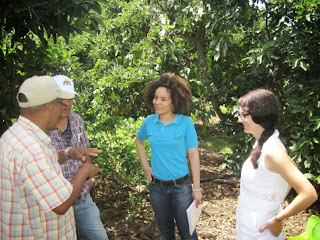Happy World Food Day!

In Latin America and the Caribbean, although the average standard of living has increased in recent decades, income inequality remains widespread. Impoverished people, particularly in rural areas, still face many barriers to achieving food security, which is defined as having access to sufficient, safe, and nutritious food to maintain a healthy and active life. Food insecurity is particularly a concern for low-income countries where Partners works, such as Haiti and Nicaragua, which are ranked as the poorest and second poorest, respectively, in the Western Hemisphere. In Nicaragua, many families subsist on just a few dollars a day and consume disproportionate amounts of corn, beans, and rice, rather than fruits, vegetables, and other nutritious foods. Seeds are unaffordable or inaccessible due to transportation barriers and adequate knowledge, funds, and resources for seasonal fruit and vegetable preservation are limited. Many rural and food insecure families do not own canni

